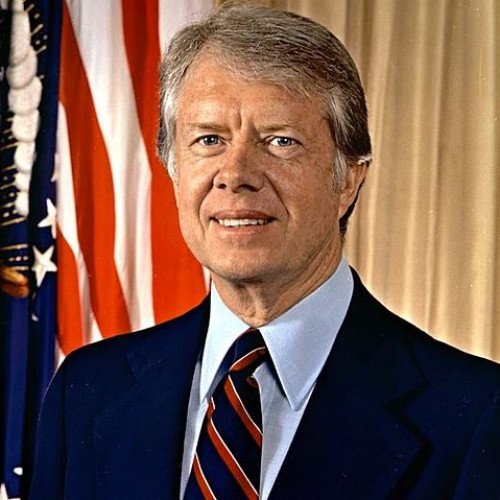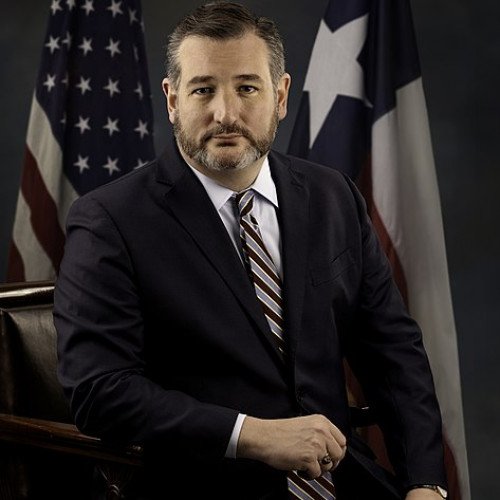Jimmy Carter VS Ted Cruz

Jimmy Carter
James Earl Carter Jr. (born October 1, 1924) is an American politician and philanthropist who served as the 39th president of the United States from 1977 to 1981. A member of the Democratic Party, he previously served as a Georgia State Senator from 1963 to 1967 and as the 76th governor of Georgia from 1971 to 1975. Since leaving the presidency, Carter has remained engaged in political and social projects as a private citizen. In 2002, he was awarded the Nobel Peace Prize for his work in co-founding the Carter Center. Raised in Plains, Georgia, Carter graduated from the United States Naval Academy in 1946 with a Bachelor of Science degree and joined the United States Navy, where he served on submarines. After the death of his father in 1953, Carter left his naval career and returned home to Georgia to take up the reins of his family's peanut-growing business. Carter inherited comparatively little due to his father's forgiveness of debts and the division of the estate among the children. Nevertheless, his ambition to expand and grow the Carters' peanut business was fulfilled. During this period, Carter was motivated to oppose the political climate of racial segregation and support the growing civil rights movement. He became an activist within the Democratic Party. From 1963 to 1967, Carter served in the Georgia State Senate, and in 1970, he was elected as Governor of Georgia, defeating former Governor Carl Sanders in the Democratic primary on an anti-segregation platform advocating affirmative action for ethnic minorities. Carter remained as governor until 1975. Despite being a dark-horse candidate who was little known outside of Georgia at the start of the campaign, Carter won the 1976 Democratic presidential nomination. In the general election, Carter ran as an outsider and narrowly defeated incumbent Republican President Gerald Ford. On his second day in office, Carter pardoned all the Vietnam War draft evaders by issuing Proclamation 4483. During Carter's term as president, two new cabinet-level departments, the Department of Energy and the Department of Education, were established. He established a national energy policy that included conservation, price control, and new technology. In foreign affairs, Carter pursued the Camp David Accords, the Panama Canal Treaties, the second round of Strategic Arms Limitation Talks (SALT II), and the return of the Panama Canal Zone to Panama. On the economic front, he confronted stagflation, a persistent combination of high inflation, high unemployment and slow growth. The end of his presidential tenure was marked by the 1979–1981 Iran hostage crisis, the 1979 energy crisis, the Three Mile Island nuclear accident, and the Soviet invasion of Afghanistan. In response to the invasion, Carter escalated the Cold War when he ended détente, imposed a grain embargo against the Soviets, enunciated the Carter Doctrine, and led a 1980 Summer Olympics boycott in Moscow. In 1980, Carter faced a challenge from Senator Ted Kennedy in the primaries, but he won re-nomination at the 1980 Democratic National Convention. Carter lost the general election to Republican nominee Ronald Reagan in an electoral landslide. He is the only president in American history to serve a full term of office and never appoint a justice to the Supreme Court. Polls of historians and political scientists usually rank Carter as a below-average president. Carter's activities since leaving the presidency have been viewed more favorably than his presidency itself. In 1982, Carter established the Carter Center to promote and expand human rights. He has traveled extensively to conduct peace negotiations, monitor elections, and advance disease prevention and eradication in developing nations. Carter is considered a key figure in the Habitat for Humanity charity. He has written over 30 books, ranging from political memoirs to poetry, while continuing to actively comment on ongoing American and global affairs such as the Israeli-Palestinian conflict.
Statistics for this Xoptio

Ted Cruz
Rafael Edward Cruz (; generally known as Ted Cruz, born December 22, 1970) is an American politician and attorney serving as the junior United States Senator for Texas since 2013. After graduating from Princeton University and Harvard Law School, Cruz pursued a career in government. He worked as a policy advisor in the George W. Bush administration before serving as Solicitor General of Texas from 2003 to 2008. In 2012, Cruz was elected to the U.S. Senate, becoming the first Hispanic American to serve as a U.S. senator from Texas. In the Senate, Cruz has taken consistently conservative positions on economic and social policy; he played a leading role in the 2013 United States federal government shutdown, seeking to force Congress and President Barack Obama to defund the Affordable Care Act. He was reelected to the Senate in 2018. In 2016, Cruz ran for president of the United States, placing second behind Donald Trump in the Republican primary. The competition for the Republican presidential nomination between Trump and Cruz was deeply acrimonious and characterized by a series of public personal attacks. Trump ridiculed the physical appearance of Cruz's wife, and falsely accused Cruz's father of murdering John F. Kennedy; Cruz vilified Trump, calling him a pathological liar and morally unfit for the presidency. Despite this, Cruz became a staunch Trump supporter during his presidency. In January 2021, Cruz provoked a widespread political and popular backlash after filing objections to the certification of Joe Biden's victory over then-President Donald Trump in the 2020 presidential election; he was criticized for giving credence to the baseless conspiracy theory that the election was fraudulent. On the day the electoral votes were tallied and Cruz filed his objections, Trump supporters motivated by the belief that the election was stolen stormed the United States Capitol. Because Cruz helped popularize and legitimize the conspiracy theory that motivated the rioters, many figures from across the political spectrum argued that he bore a degree of responsibility for the riot and the five deaths it caused, and called for his resignation or expulsion from the Senate.